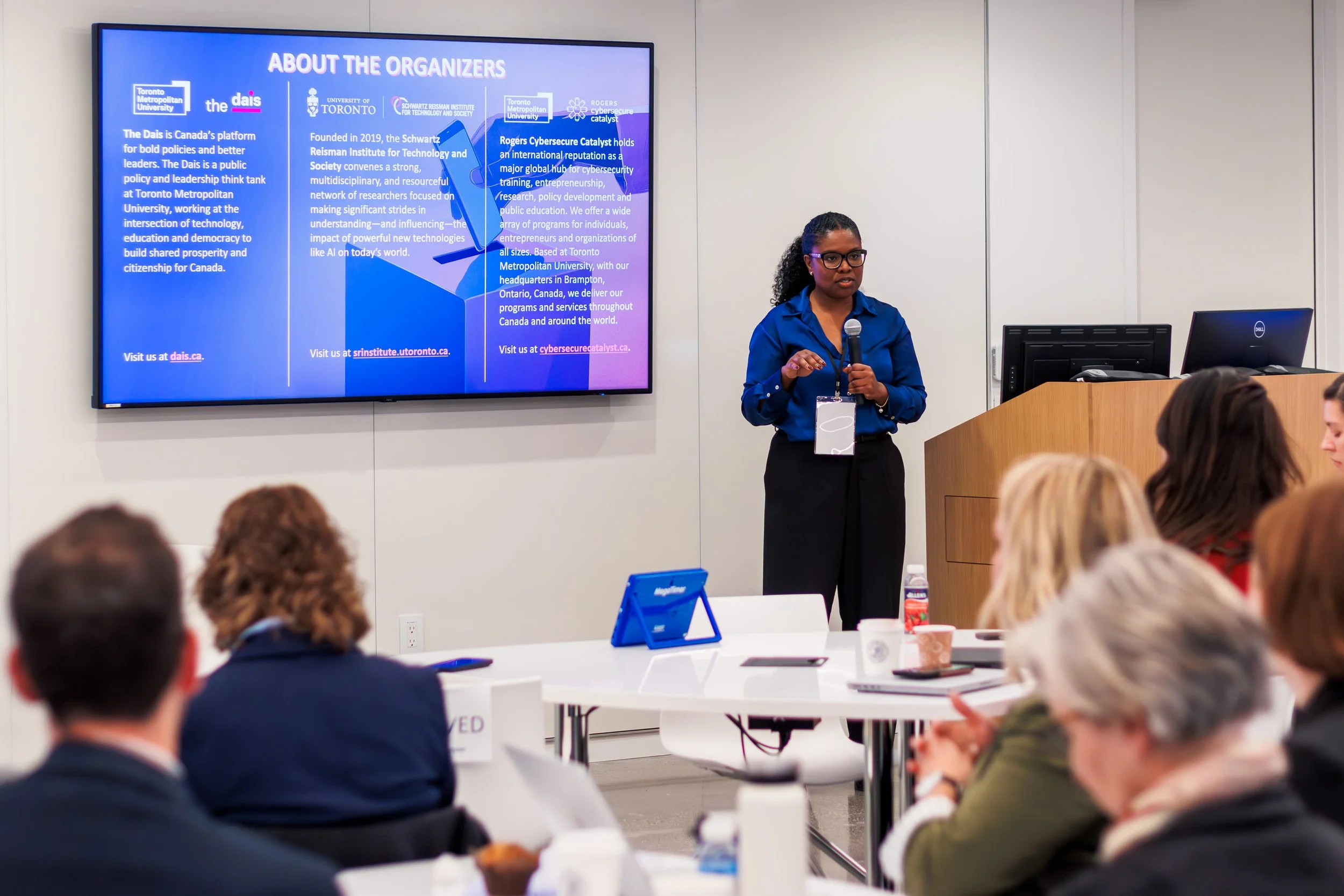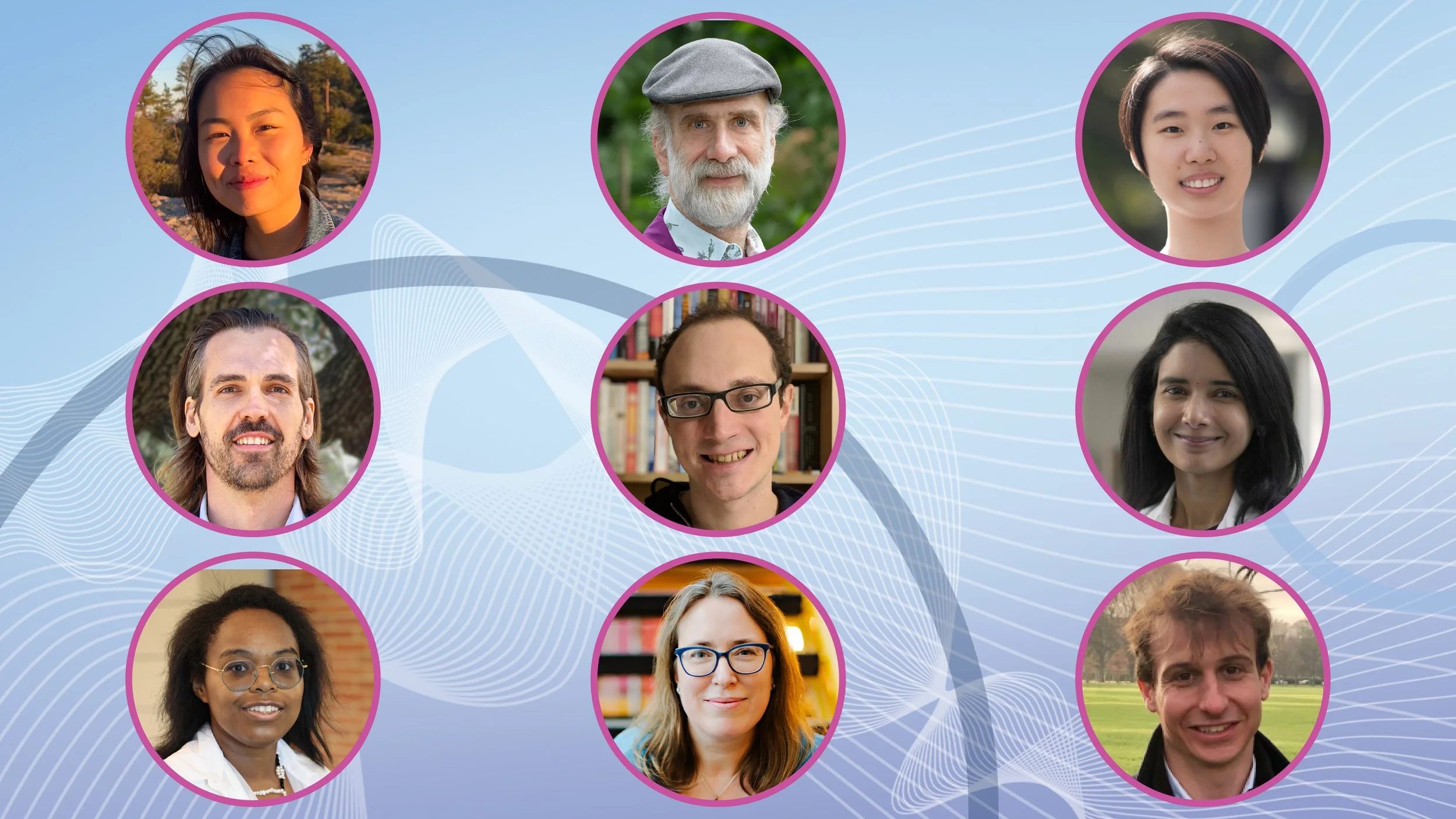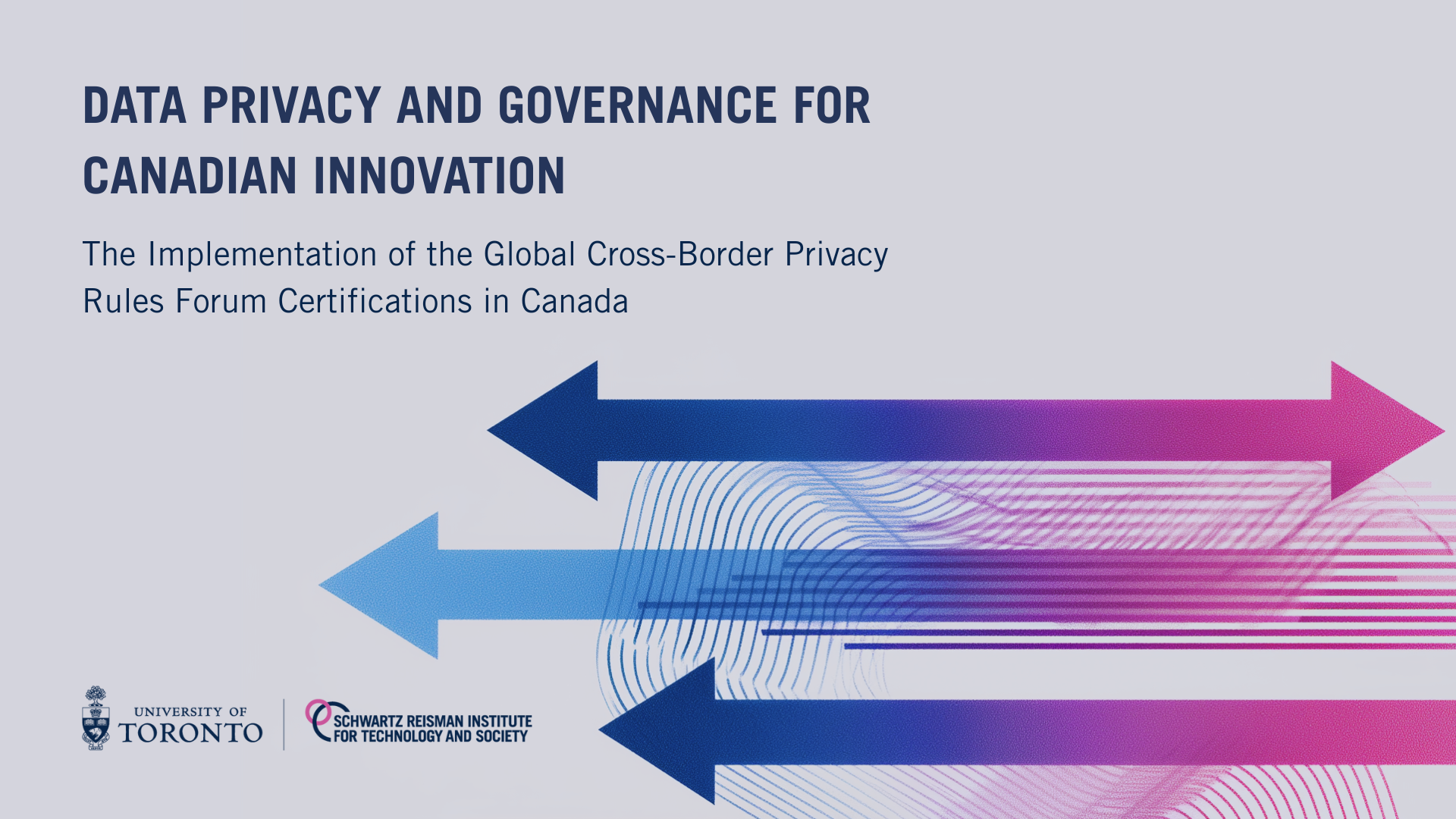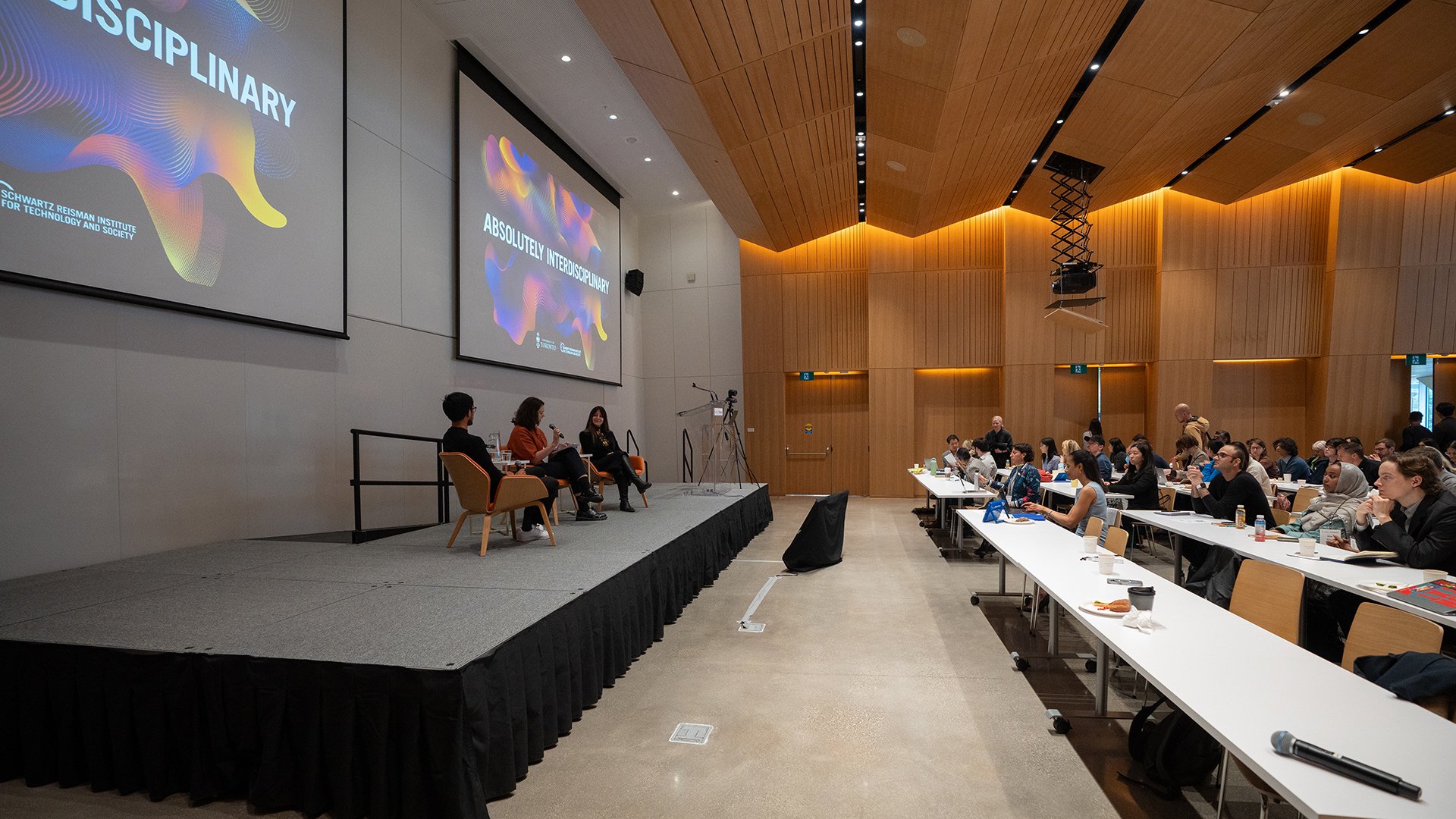WHAT’S HAPPENING
Here’s what we’re thinking about, talking about, and working on at the Schwartz Reisman Institute.
When the algorithm is wrong: A new partnership calls out racism in AI systems
A new partnership co-led by Karina Vold is confronting racism in AI systems—highlighting how tools like facial recognition and LLMs disproportionately harm Black and racialized communities, and calling for greater public awareness and equitable governance of AI in Canada.
AI and digital innovation needs science too
SRI Executive Director Monique Crichlow argues that Canada’s global AI leadership depends on sustained investment in fundamental research, interdisciplinary science, and thoughtful governance to ensure AI advances serve the public good, not just short-term economic growth.
SRI Seminar Series resumes with leading scholars on AI, governance, and society
The SRI Seminar Series continues in winter 2026 with leading scholars examining AI governance, democratic values, and human-centred technology in the public interest.
SRI appoints Bruce Schneier as visiting senior policy fellow
Global security expert and author Bruce Schneier—known for reshaping how the world understands security, privacy, and trust—has joined the University of Toronto’s Munk School of Global Affairs & Public Policy and the Schwartz Reisman Institute for Technology and Society (SRI) as a visiting senior policy fellow for 2025–26.
AI companions: Regulating the next wave of digital harms
From AI chatbots marketed as digital partners to voice assistants designed for intimacy, these systems promise connection while raising urgent questions about privacy, manipulation, and digital addiction.
Data privacy and governance for Canadian innovation: SRI responds to Canada’s implementation of global privacy certifications
The Schwartz Reisman Institute for Technology and Society responds to Canada’s consultation on global privacy certifications, outlining how CBPR and PRP can strengthen data protection, build public trust, and drive innovation in the digital economy.
Absolutely Interdisciplinary 2025 explores new frontiers in AI research
At SRI’s annual conference, participants discussed future directions and key challenges in AI research, including the complexities of aligning advanced AI with human values and interdisciplinary perspectives on AI safety.
AI and trust: Security technologist Bruce Schneier explores governance in the age of machine agency
The Schwartz Reisman Institute for Technology and Society (SRI) hosted a roundtable discussion on February 11, 2025, as part of the official side events at the AI Action Summit in Paris centered on insights from an upcoming SRI paper, Trust in Human-Machine Learning Interactions: A Multifaceted Approach, led by SRI Research Lead Beth Coleman.
Future Votes: Safeguarding elections in the digital age
In October 2024, the SRI co-hosted a half-day event with The Dais and Rogers Cybersecure Catalyst to address election integrity, cyber security, and disinformation in the age of AI. The result was The Future Votes report, a reflection of key insights and recommendations for policymakers on how we can practically protect our democratic elections.
AI agents pose new governance challenges
How do we successfully govern AI systems that can act autonomously online, making decisions with minimal human oversight? SRI Faculty Affiliate Noam Kolt explores this challenge, highlighting the rise of AI agents, their risks, and the urgent need for transparency, safety testing, and regulatory oversight.
Schwartz Reisman Institute leaders join Canada's push for safe AI
SRI Director David Lie and Co-Chair David Duvenaud were appointed to Canada’s new Safe & Secure AI Advisory Group. Their expertise will help shape policies at this crucial time in AI's development and contribute to Canada's efforts to keep these powerful technologies safe.
Building trust in AI: A multifaceted approach
The Schwartz Reisman Institute for Technology and Society (SRI) hosted a roundtable discussion on February 11, 2025, as part of the official side events at the AI Action Summit in Paris centered on insights from an upcoming SRI paper, Trust in Human-Machine Learning Interactions: A Multifaceted Approach, led by SRI Research Lead Beth Coleman.












